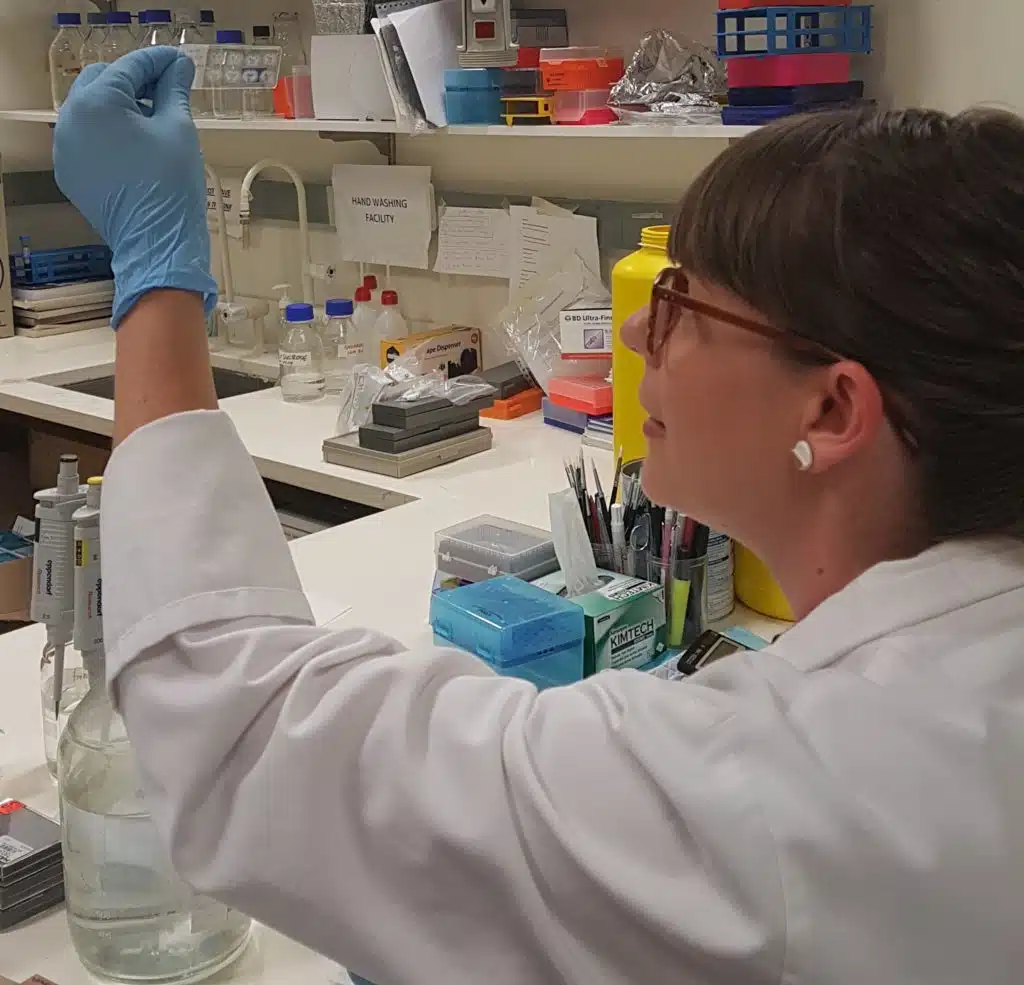Along with substance use disorders, this eating disorder has one of the highest mortality rates of the psychiatric diseases.
“It’s known that the reward circuitry in the brain is somehow disrupted in anorexia. Patients don’t experience basic rewards such as the pleasure associated with eating or in sleeping in a soft bed,” says Dr Claire Foldi, a postdoctoral researcher at Monash University who is leading the work.
“This ‘pleasure’ is produced by the reward centre of the brain, which is less active in patients with anorexia. Functional imaging has shown that the changes in the brain can persist after someone is ‘cured’. But until now, we hadn’t fully understood how the reward circuitry was involved, so we haven’t been able to design drug therapies to address this.”
Claire’s team harnessed the power of a virus, to insert modified receptors into the reward circuitry of rats. The neurons within this circuit were then activated by a drug that only targets these receptors, leaving the surrounding neurons unchanged.
“Using this strategy in a rat model of anorexia, I showed that the body weight ‘free-fall’ can be prevented by reward circuit activation, leading to a profound 65% increase in survival,” Claire says.
While further work is needed before it could be translatable to humans, the reward circuitry manipulation may have implications for other conditions, such as addiction and obesity.
“My vision is to use these results to develop new drug treatments for this crippling disorder, which currently has limited successful recovery outcomes.”
The research was published in the journal Neuropsychopharmacology: www.nature.com/articles/npp201763

Claire hopes to apply her findings to other conditions where the brain’s reward pathways are disrupted






 Fresh Science is on hold for 2022. We will be back in 2023.
Fresh Science is on hold for 2022. We will be back in 2023.